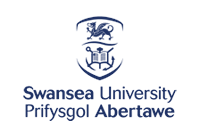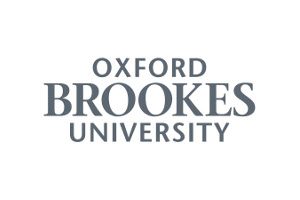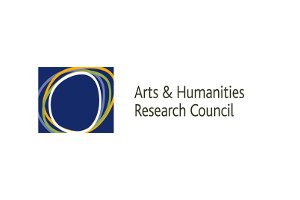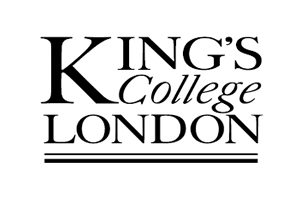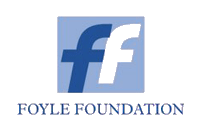The Indian Connection III
Joanna Barker
The first two parts (see Part 1 and Part 2 here) of this blog covered the story of Elizabeth Charlton Montagu’s mother’s family. This instalment relates the story of the family of her father, Francis Charlton. It is informed by letters recently discovered by Anna Senkiw at the Houghton Library at Harvard as well as my own genealogical research.
The Charltons came from Ludlow in Shropshire. The family had lived there for generations, and one branch had become baronets, but Francis had no title and apparently no property: he and his siblings had to go abroad to make a living. Francis joined the service of the East India Company, his brother John served in the army, his sister Isabella also went to India, and his brother Jasper settled in America.
Francis did well in his chosen career, becoming a successful merchant and rising to become a member of the East India Company’s Council in Bengal. On 20th April 1765 in Calcutta, he married Elizabeth Maitland, a young widow whose first husband had been forty years her senior. On 29th January 1766 he wrote from Dacca (now Dhaka, the capital of Bangladesh) to his wife’s mother, Elizabeth Southby, to say:
It is with inexpressible pleasure I acquaint you that your daughter my dear Betsey was yesterday brought to bed of a little girl who I hope will live to hail you and to testify the respect she owes you. My dear Betsey is as well as can be expected for the time and the little one promises doing well.[1]
Tragically, although the child survived, the mother did not. The widowed Francis left India on 17th March 1769 on the Talbot, which was nearly destroyed in a violent storm of the Cape of Good Hope and limped into St Helena the following August. He was so shaken by this experience that he refused to board the ship again even after it had been repaired, and waited until February of the following year to take another vessel. Mrs Southby and the little girl also returned to England, and one hopes they had a better journey. They settled in Welbeck Street in London’s Mayfair, and Francis later retired to Lymington in Hampshire.
Francis’s sister Isabella also went to India and made a good match, marrying George Dawson (1732-1812), who had been Governor of Masulipatnam from 1753-1756, taking up the position at the unusually early age of 21 when his predecessor resigned owing to ill health. He filled the post again in 1765 and was promoted to the Board of the East India Company. They married in Fort George, Madras, on 17th October 1761 and had two sons, George and John, and on their return to England in 1775 settled at Ackworth Park near Pontefract. George Dawson wrote to Elizabeth Charlton from Ackworth in July 1785 to congratulate her on her marriage to Matthew Montagu. (There appears to have been another son, Charlton Dawson, who died in the Dutch South American colony of Demerara in 1797, but details are lacking.)
Jasper Charlton went in the opposite direction to make his fortune. He settled in Chowan County, North Carolina, where he became a lawyer and a judge of the State’s Supreme Court. In 1774 he was elected as one of the delegates to the United States Congress, but was unable to travel to Washington because of an attack of gout.
He married Abigail Slaughter, who was clearly a strong-minded woman, for she was one of the signatories of a petition known as the Edenton Tea Party. There were a number of political protests made in response to the Tea Act passed by the British parliament in 1773, the best-known being of course the Boston Tea Party, but this one was unusual in that it was organised entirely by women, who vowed to boycott not only tea but all British products until the tax was repealed. Abigail was one of 51 women who signed the petition, a copy of which was sent to the British press.
Abigail and Jasper had only one surviving son, named Jasper like his father. The younger Jasper went to India, with the encouragement of his uncle Francis, and joined the East India Company. The officials, or ‘servants’, of the EIC were permitted to run private ventures on the side, so Jasper purchased a ship which he planned to fill with a cargo that he could sell in England for a significant profit. Unfortunately, his duties as Commissary the EIC’s army at Vizagapatam in Bengal prevented him from accompanying the vessel, so he put it in the hands of a Dubash or intermediary. The Dubash sailed the ship to a port controlled by the Marathas, who were enemies of the British, and kept it there for five months, stealing the money entrusted to him and sending the ship to sea during the monsoon, when it sank and was completely lost.
Like many gamblers, Jasper decided to double down on his losses and try again. He managed to build another small ship, with the help of a £1,000 legacy from his uncle Francis, and sailed to Ceylon, but was again defrauded by a man who purchased his cargo in exchange for ‘false packages of goods’ and, by the time Jasper had discovered the scheme, sailed for the coast of Africa and was beyond the reach of pursuit. In desperation, Jasper tried to sail from Ceylon to Bombay, where he had been offered the opportunity to purchase a ‘profitable freight’, but the monsoon broke while he was sailing up the Malabar coast and the ship twice lost its mast, and after three months at sea was forced to put into the Portuguese colony of Goa.
By this time, Jasper was not only penniless but in debt, and could see no option to recover his fortunes in India. He threw himself on the mercy of the Governor of Goa, who took pity on him and offered him free passage to Europe when he himself returned home. It was in this way that Jasper found himself in Lisbon in June 1788, where he managed to get himself defrauded out of the small amount of money that remained from the sale of his ship. His only recourse was to write to his relatives in England, begging for their help to enable him to go back to America and take charge of his father’s property.
Jasper’s cousin Elizabeth, who had married Matthew Montagu three years previously, came to his rescue and sent him the money he needed; he later confessed to her that if she had not done so, he was on the point of committing suicide. He returned to Edenton, where he found his mother seriously ill and the rapacious neighbours casting envious eyes at his property. Jasper was encouraged to become a lawyer like his father, but he did not see this as a quick enough way to make money and decided to become a planter. His mother advanced him the money to buy a plantation, and he was sufficiently well-placed to enlarge his prospects ‘by a matrimonial connexion’. This was indeed an advantageous match, since his wife, Elizabeth Stone, was the sister of David Stone, who would become Governor of North Carolina and represent the State in the US Senate.
Jasper and Elizabeth had two children, Elizabeth and Francis, but he did not live long to enjoy his prosperity, dying in 1797 and dividing his property equally between his wife and children. His mind was clearly troubled, since his Will includes this unusual statement:
And I wish it also to be known that for these several days past I have been so extremely weak and unwell as to be entirely incapacitated till now from making either Deed or Will and am fearful that something improper may have been extorted from me while in that deranged state.
It seems that the memory of the occasions when he was defrauded of his property in India remained with him in his final hours.
Sources:
Houghton Library bMS Eng 1365:
Letter from Francis Charlton to Frances Southby, Box 1, 29
Letter from George Dawson to Elizabeth Charlton Montagu, Box 2, 44
Letters from Jasper Charlton to Elizabeth Charlton Montagu, Box 1, 31.1 & 31.2
[1] Francis Charlton to Frances Southby, Dacca 29th January 1766, Houghton Library bMS Eng 1365, Box 1, 29.
Please note that all dates and location information are provisional, initially taken from the library and archive catalogues. As our section editors continue to work through the material we will update our database and the changes will be reflected across the edition.
Browser support: The website works best using the Chrome, Edge, and Firefox browsers on the PC, and only Chrome and Firefox on the Mac.
